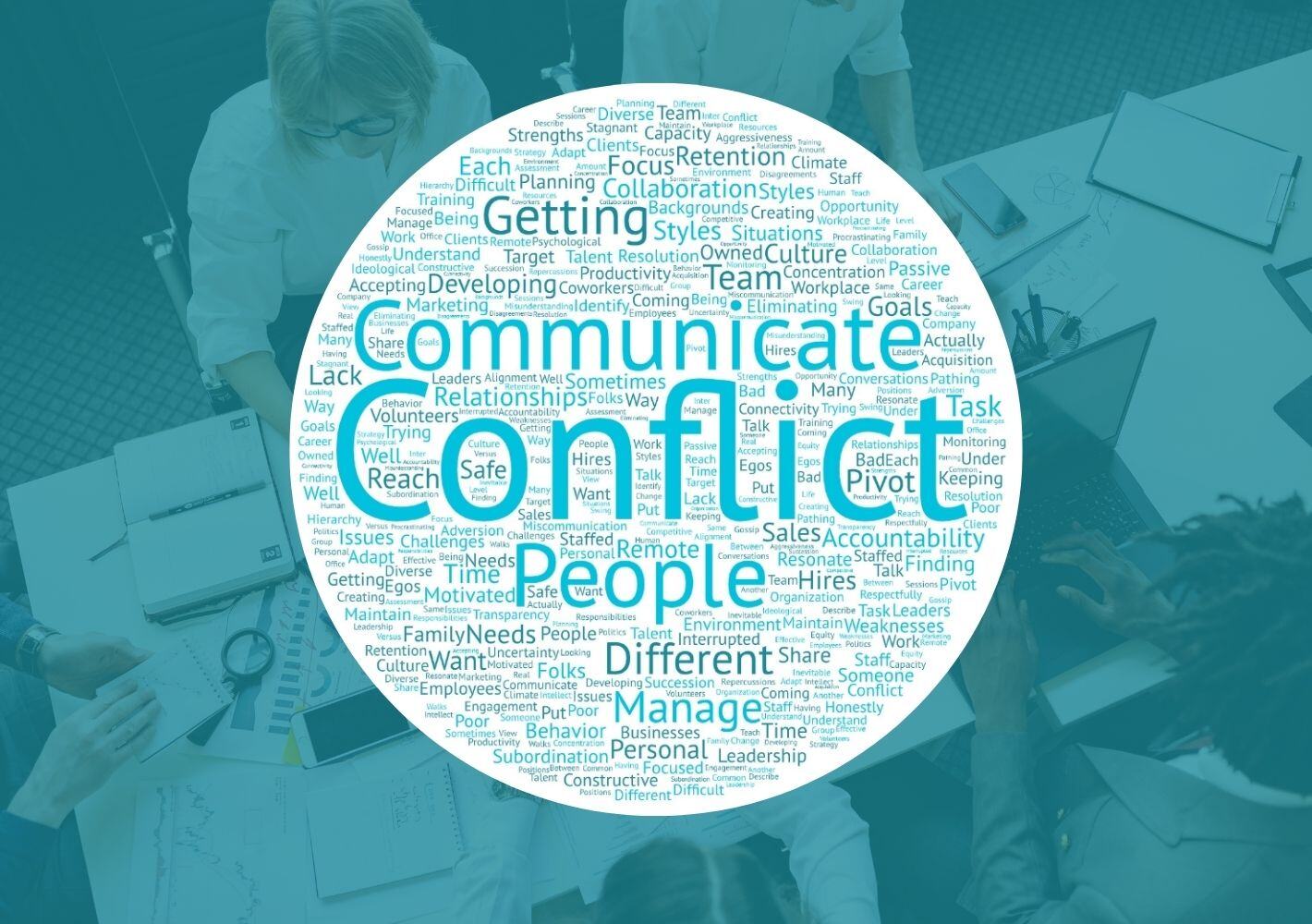Conflict with a coworker is bound to happen. In an office environment, you’re often thrown together with people you would never normally choose to spend eight hours a day with. Even if you enjoy spending time with your colleagues, working closely with the same people day in and day out is bound to occasionally cause a little friction. Unfortunately, small tensions between individuals can, over time, blossom into full-blown conflicts. The good news is that you can easily resolve most inter-office personality conflicts using the DISC model of human behavior.
One of the most useful lessons of DISC personality analysis is that DISC can be used to anticipate the way different personality types will act in stressful situations. When you anticipate a reaction, you can adopt strategies to put that person at ease. At the very least, once you use the DISC theory of human behavior to recognize that many of the actions you dislike in another person are instinctual, it goes a long way to fostering tolerance and understanding. What follows is a simplified guide to how colleagues can work together even when they don’t see eye to eye.
When you have conflict with a D
D personality types prefer a straightforward approach and respond well to direct confrontation. When problems with a D style arise, it’s best to sit down and have a conversation right away. Since D styles can sometimes be impatient, don’t beat around the bush. Get to the heart of your problem immediately. When discussing the problem, it’s best not to bring emotions into the discussion. D personalities rarely frame things in terms of emotion, and will likely not be immediately sympathetic to emotional appeals. Also, because D types are task-focused, it’s a good idea to spend more time talking to them about solutions rather than the actual problem. The good news is DISC personality type D is quick to take action. Once you bring a problem to the attention of a D style, they won’t put off implementing a solution.
When you have conflict with an I
I personality types prefer a more friendly and conversational approach. When problems with an I style arise, make it clear that the issue you have isn’t personal. Also, I types will typically understand better if you frame the issue in terms of emotions (“When this happened, it made me feel…”). During your conversation, try to keep things relaxed and upbeat. Also, be sure to give the I plenty of time to talk as well. When the I is speaking, be a good listener. Don’t interrupt, and apply active listening to make it clear that you hear and understand what they’re saying. Understand, too, that DISC personality type I is not naturally deadline-focused. When conflict with an I personality is based on time management, be aware that this personality style does not place a high priority on keeping to an exact timetable. You might try working on a more flexible timetable or ask for work to be completed a few days before you need it.
When you have conflict with an S
Since they crave harmony in the workplace, you are least likely to have a full-blown conflict with an S. S personality styles places a strong priority on personal relationships, so when discussing problems with them try to make it clear that despite the problem you still value and appreciate them. Also, S types are best persuaded once you can establish personal common ground. Unfortunately, S styles dislike direct confrontation and will try to avoid it whenever possible. To counter this impulse, keep things calm when you discuss problems with them. If you are pushy or overly aggressive, an S will retreat or agree to a solution that they don’t plan to implement just to end the discussion. DISC personality type S is a very good listener, so as long as you clearly explain your issues politely, this style will focus all of their attention on what you have to say.
When you have conflict with a C
C personality styles can be sensitive, and hate to be criticized. They will often feel resentment when directly confronted. As a result, when discussing problems with a C, don’t frame things in terms of personal criticism (“I don’t like it when you…”). Also, try not to make a C style feel ambushed. When you need to talk about a problem, schedule a time to talk later in the day. This will take away the element of surprise and give the C time to formulate their thoughts. When talking with a C type, always be sure to explain yourself well. Don’t be vague. Allow time for discussion and be ready to answer questions. DISC personality type C is very good at problem-solving, so once you’ve explained your issue, they will instinctively want to create a plan to fix it. On a daily basis, be sure to have realistic expectations of the C style. Personality type C is very good at tasks that require precision and organization, but because of their methodical approach they often need to work at a slower pace than some of the other personality types.
The next time you find yourself feeling irritated with a coworker or feel like you’re struggling to find common ground, draw from your DISC human behavior training to relieve the tension. Once you understand the theories of human behavior that inform DISC, it becomes much easier to work through office conflict.
If you want to learn more about DISC behavioral analysis, take our online Certified Behavioral Consultant course to help you become more familiar with the DISC model and how to apply it to conflict resolution in your organization.





